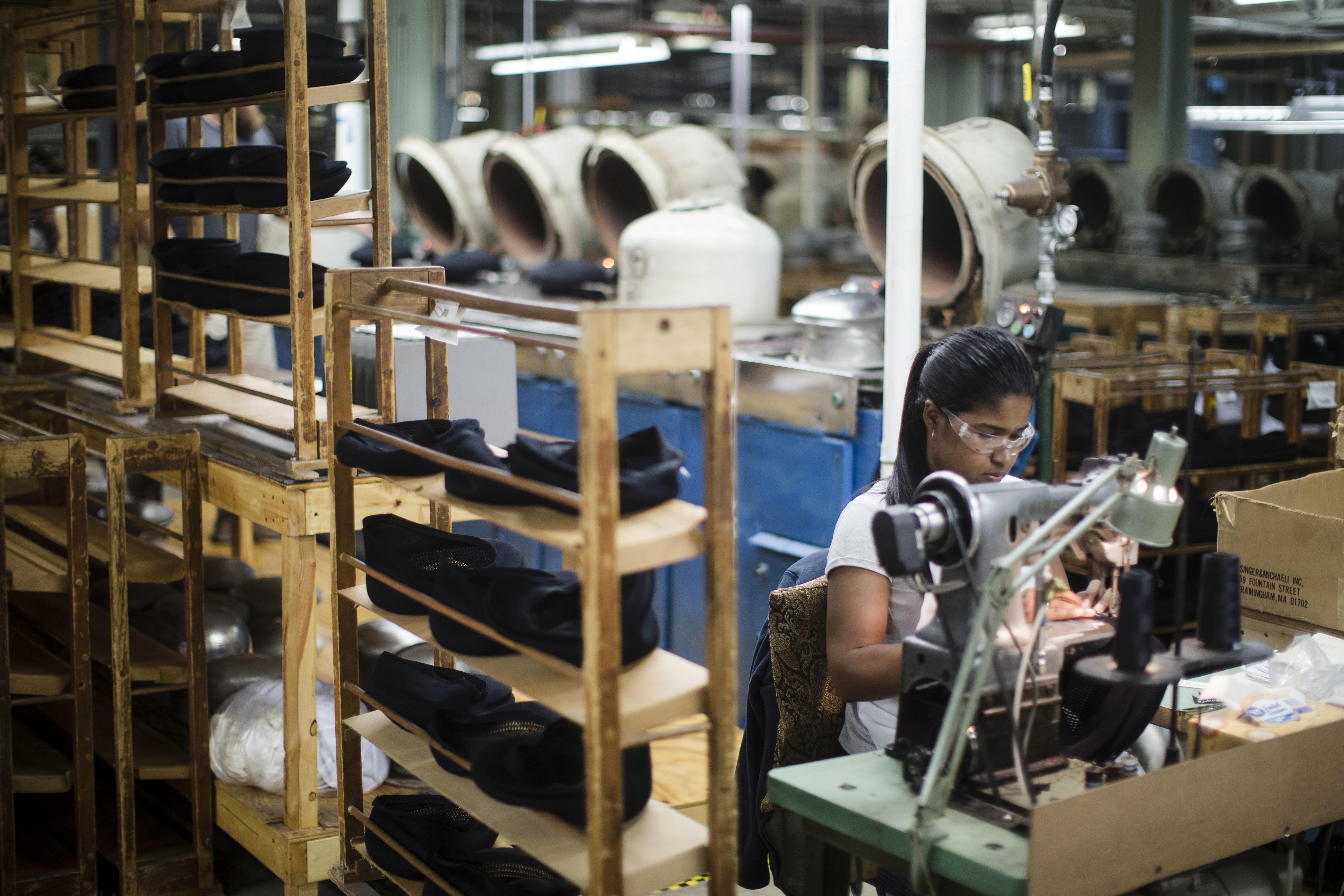 A woman works at a factory in Adamstown, Pennsylvania, United States, May 1, 2017. (PHOTO / AP)
A woman works at a factory in Adamstown, Pennsylvania, United States, May 1, 2017. (PHOTO / AP)
NEW YORK - US strict law enforcement on the prohibition of imports produced with forced labor and the existence of forced labor within the United States cause frustration to players in the apparel and footwear industry, according to the head of a trade association.
"While everyone is going out of the way to make sure that there is no forced labor in their supply chains, the US government itself continues to create a preference for domestic contracting for their own forced labor," said Stephen E. Lamar, president and CEO of the American Apparel & Footwear Association (AAFA) on Thursday.
Among more than 1.2 million people incarcerated in the US state and federal prisons, two out of three are also workers, according to data from the American Civil Liberties Union
The AAFA is a national trade association in the United States representing more than 1,000 brands in the apparel and footwear industry.
READ MORE: No end to Washington’s disinformation
Speaking at an online panel discussion affiliated with trade promotion event Texworld New York City, Lamar said the US government runs a network of 75 prison factories that objectively meet the definition of forced labor in the United States and those factories are constantly being given government contracts at the expense of companies that are making sure they don't have forced labor in their supply chains.
US government officials "are guilty of forced labor procurement. So a lot of frustration on that point alone," Lamar said.
ALSO READ: US' 'labor' law another self-hurting blow
Forced labor is common in prisons throughout the United States since penal labor is explicitly allowed by the 13th Amendment to the US Constitution.
Among more than 1.2 million people incarcerated in the US state and federal prisons, two out of three are also workers, according to data from the American Civil Liberties Union (ACLU).


